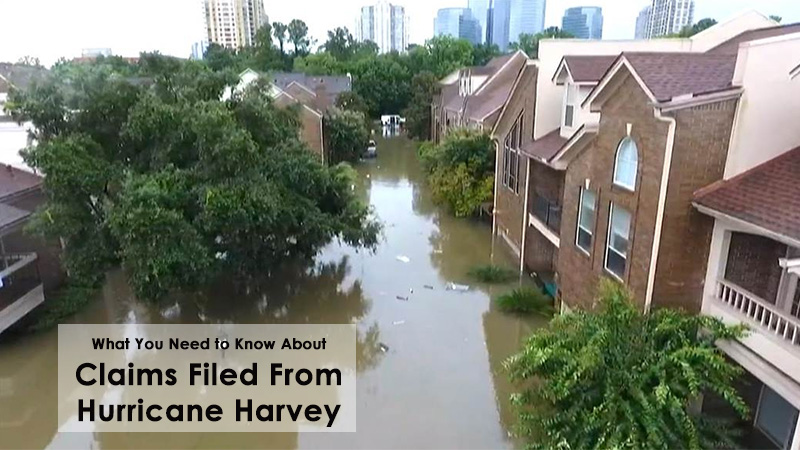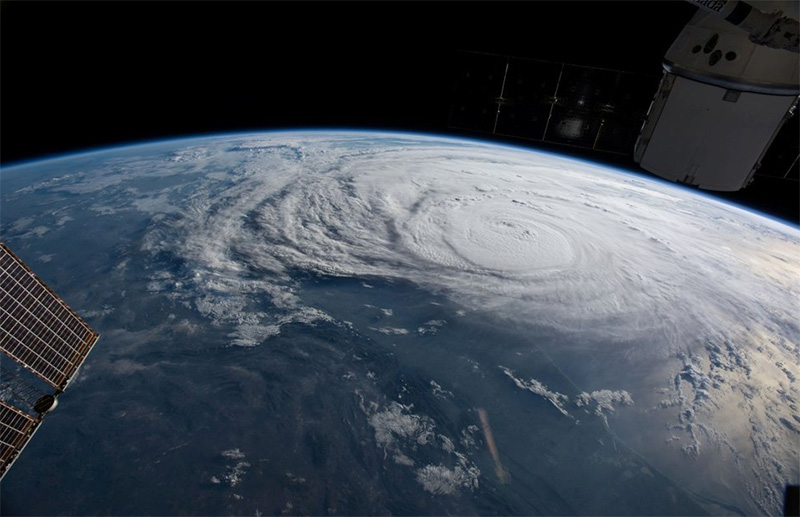What You Need to Know About Claims Filed From Hurricane Harvey
Hurricane Harvey dropped unfathomable amounts of rainwater. The danger might be over but the aftermath it caused in massive destructions and damages in Texas, Florida, and Puerto Rico still remains. For example, more than 43,000 structures were damaged or destroyed in Harris County.
Sadly, many property owners and renters own standard insurance policies that only cover wind damage and loss, but not groundwater flooding. You’ll need a separate policy for groundwater flooding from a private insurer or the National Flood Insurance Program.

This post is going to provide some guidelines on how to handle Hurricane Harvey insurance claims. Read on to learn more.
Understand House Bill 1774 in Texas
Lawyers in Texas were urging victims of Hurricane Harvey to file their claims before Sept. 1. This date was not the deadline for filing claims as many had thought. Instead, it was the date when the House Bill 1774 was slated to take effect.
So, what is the bill all about? According to lawyers, the bill would buffer insurance companies against any legal suits by victims. Governor Greg Abbott signed the bill back on May 27th and it covers all lawsuits that are filed due to weather-related claims. Consumer advocates say the bill will limit homeowners’ ability to sue insurance companies if they take months or years to settle claims.
It also reduces the interest insurers will have to pay to homeowners if they take too long to settle the claims. With the new law, homeowners will have hard time trying to get lawyers to represent them when suing insurance companies. This is because they won’t be able to demand timely payments for the damage or the loss.
What About National Flood Insurance Program?
With the National Flood Insurance Program (NFIP), homeowners in high-risk areas enjoy the privilege of getting low-cost insurance policies. Private companies were not willing to offer these types of policies, so the government took the initiative to do so.
Therefore, the NFIP is a great option for claims filed from Hurricane Harvey if you live in high-risk zones. The program offers up to $100,000 to homeowners and $250,000 to real estate owners for their damaged property. As a homeowner, you have to pay monthly premiums if you use this program.
To file a claim with NFIP, you need to contact your insurance agent. Make sure you’ve got your policy number and their contact information. Your adjuster will then schedule an appointment to assess the property damage. They’ll also help you to prepare proof of loss statement and file the claim within 60 days of the flood.

Key Tips for Filing Claims
If you’re a victim of Hurricane Harvey, you first step is to contact your insurer as soon as possible. Be sure to provide accurate details about the damage and make sure you get a claim number. Depending on your case, your insurer will schedule a visit by an adjuster, and this can take about a week to six months.
Remember to document all the losses in video and pictures. It will also be helpful if you have recent before photos of your property. Keep the receipts of any amount you spend to make immediate repairs to your home. Additionally, check with your insurer before discarding any of your damaged items.
In the wake of Hurricane Harvey, property owners and homeowners should expect delays in claim processing. As such, starting to file your claim early enough will help to get a compensation in a timely manner. Just ensure you have all the evidence you need to support your claim.


